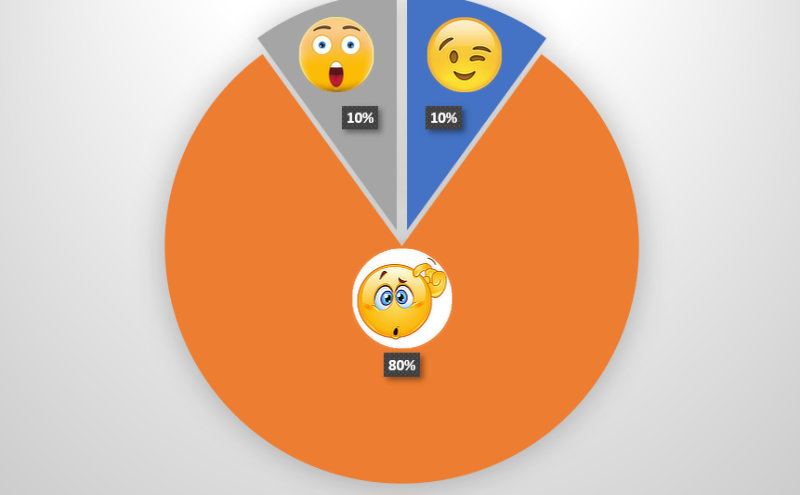
The 10-80-10 principle as it applies to many things.
A comment here (from ‘Lauren’) warrants a quick article. Why? Because it’s seemingly VERY relevant as to how people handle a crisis situation. Pretty much any crisis. Recognizing “who’s who” is a good thing to know for preparedness sake.
The 10-80-10 principle
Lauren said, “I just read something interesting that I think applies here. It fits with my own experience as well.”
10% of the people
10 percent of people will handle a crisis with a relatively calm and rational state of mind. They pull themselves together quickly. They accept the situation, make decisions to improve it, and take action.
80% of the people
However,the vast majority of us, 80 percent, are immobilized, stunned, and bewildered and wait for help to come or someone to tell us what to do.
10% of the people
The group we try not to be in, however, is the last 10 percent. They freak out and make the situation worse.
Ken adds:
This all sounds about right to me, given my life experience. The VAST majority of people are not proactive doers. I’ve seen it in life. Even in the workplace. Only a small percentage are the one’s who get the most work done (for example), or who don’t need supervision.
I’ve seen it during tense situations. It’s like people’s brains seize up for a while as they process what’s happening.
It’s largely due to normalcy bias in my opinion. We all succumb to routines to an extent. Our normal expectations of day-to-day life as we go about our lives. But, Whamo, when something goes “tilt”, that’s when the robotic motions and the central-processing-units go “blue screen”.
And how many of you have experienced the 10% who freak out? Oh my… I can think of many examples. They become big problems. Why? because they begin to affect the 80% who are looking for direction. And if they listen to the horrible advice coming from the freak-out group, well, that’s not going to be good…
So, Ken, why are you posting this?
My first thought was correlation of the 80% to the general “sheeple” group. Mostly followers who may be somewhat easily influenced. This is why the control of information is so important to those who are pushing an agenda. Example, current events of today and the silencing of opposing political voices to the mainstream. The mainstream media is VERY powerful in this regard. They know how important it is to influence the 80%.
Another reason I posted this. To realize that perhaps ~ 80% of people are not critical thinkers. When speaking with, or attempting to communicate with the 80% about something that could be “jarring” to their normalcy, it is important to understand their mindset. If you “blow their minds” (so to speak), their CPU’s will “lock up”. And then nothing gets in.
When the 80% hear, read, or see what seems to be “shocking” news, information, or events — their minds respond “this does not compute”. “Must be crazy”. “Conspiracy” (oh they love that word). Often they will harden their minds to further input and reject it immediately upon hearing, seeing, or reading what may seem an uncomfortable truth.
Anyway, just thought I’d throw it out there. 10-80-10. Thanks Lauren for bringing that up.











































![Air gun 101: The differences between .177 & .22 – Which jobs they do best ? [Infographic]](https://airgunmaniac.com/wp-content/uploads/2020/09/g44-150x150.jpg)